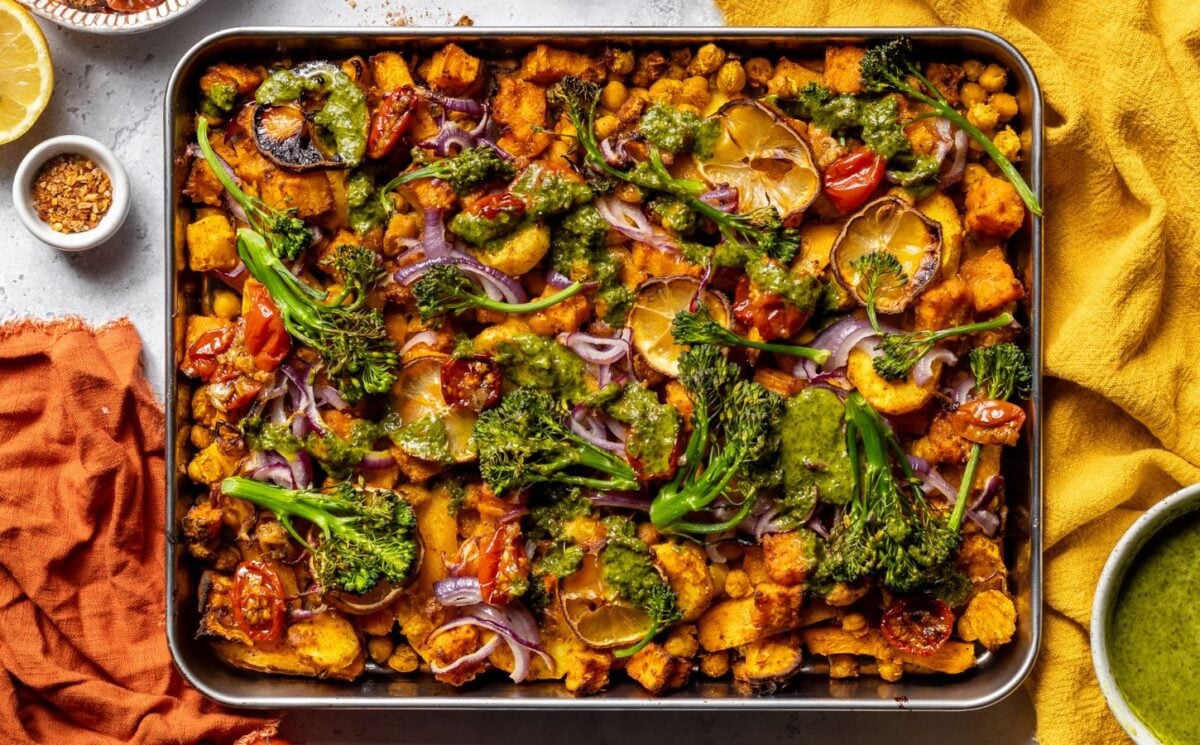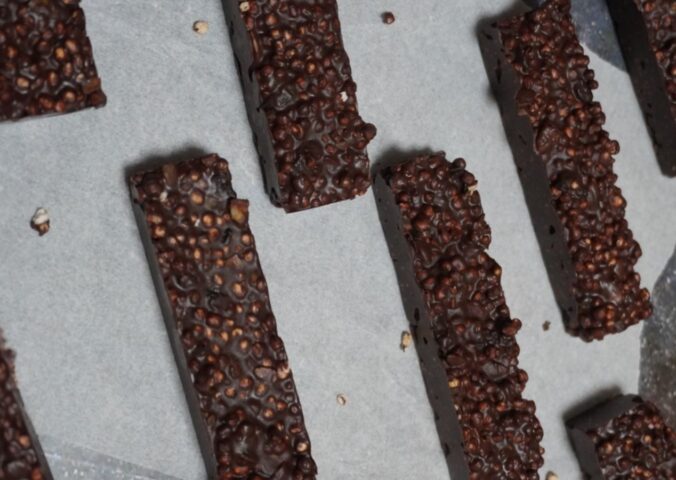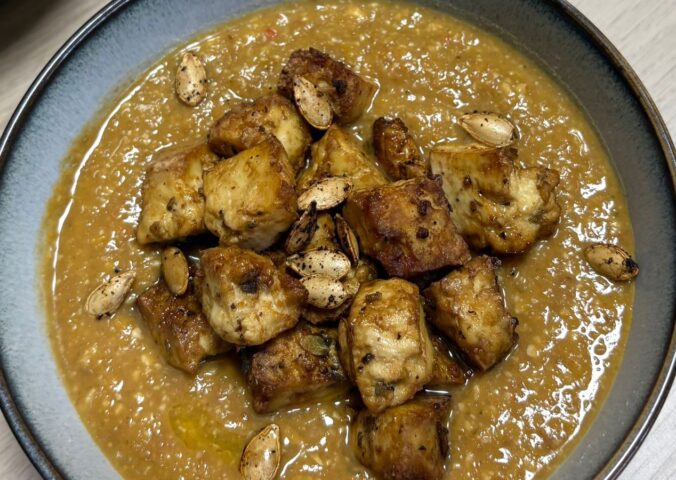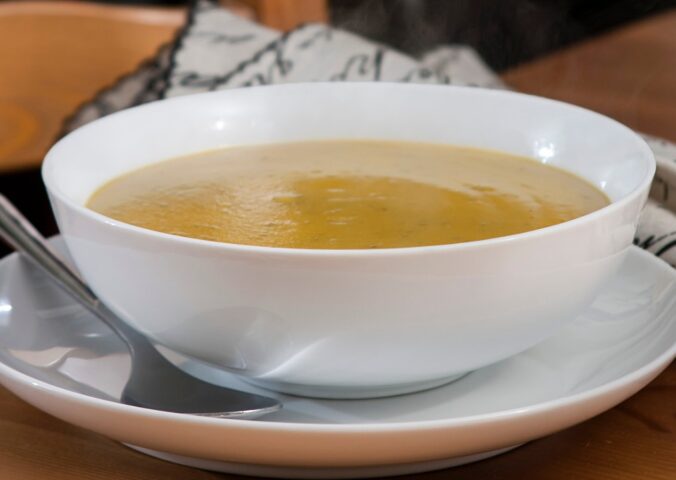The brain is arguably the most important organ in the human body, and what people eat can have an immediate and long-term effect on brain health. Here’s what you need to know about brain-boosting plant-based foods, plus 11 vegan recipes that use them.
The human brain controls thoughts and memories, regulates emotions, and informs motor skills. It also manages many of the body’s essential processes without conscious thought or intervention, including breathing, blinking, heartbeat, and temperature.
The brain’s storage capacity is enormous, and an average adult brain can hold the organic equivalent of 2.5 million gigabytes of digital memory. (That’s nearly 70 times larger than the biggest hard drive ever created, which is 36,000 gigabytes.)
Brain health and diet
Brain health, and performance, are inextricably linked to diet. The brain represents just two percent of the body’s weight but consumes more than 20 percent of a human’s daily energy intake. This means that a significant proportion of what people eat fuels their brains.
“When food is broken down, it interacts with various systems in our body, such as the nervous system, endocrine system (hormones), immune system and digestive system, and fuels many cellular metabolic processes,” Reena Sharma, a registered dietician and founder of The Vegan Dietician, tells Plant Based News (PBN). “Research looking at the impact of food on our brain health is ongoing, but there are very interesting and more established findings that link certain foods to improvements in cognitive decline, memory, depression and dementia.”
Read more: ‘Why Vegans Have Smaller Brains’: Debunked
Nutrients, heart health, and brain health
Foods rich in omega-3s are thought to boost brain health in the form of increased learning, memory, overall cognitive wellbeing, and blood flow, while insufficient levels have been implicated in mood disorders and cognitive decline in adulthood.
Vitamins B6, B12, and folate are all involved in the production of neurotransmitters. Meanwhile, choline is a precursor to acetylcholine, a key neurotransmitter that aids memory, learning, cognitive function, and brain development. Acetylcholine also protects cell membranes and could help to prevent cognitive decline as people age.
A growing body of evidence also suggests that the same foods that are good for heart health – such as fruit, vegetables, legumes, nuts, and seeds – may also be good for brain health, meaning that eating more of these key ingredients will likely aid overall longevity.
Writing for Plant Based Health Professionals, Dr Shireem Kassam noted that dementia has been referred to as “type three diabetes” because of its association with inulin resistance, a “multifaceted syndrome” primarily linked to heart disease and diabetes.
“Dementia shares similar risk factors to cardiovascular disease (heart attacks and stroke),” said Kassam. “Those with high blood pressure, high cholesterol, type 2 diabetes, and higher body weight are at significantly increased risk of developing dementia later in life.”
Gut health and the brain
A growing body of evidence also indicates that brain health may be inextricably linked to gut health, sometimes referred to as the “brain-gut connection.”
“Since we know there is a strong link between the gut microbiome and the brain, fuelling our gut microbes is important,” says Sharma. To foster good brain-gut health, she recommends “foods rich in probiotics (live beneficial bacteria) and prebiotics (foods that feed our gut bacteria).”
Sharma specifically suggests foods such as kimchi, saurkraut, kombucha, and some plant-based yoghurts for probiotics, while fiber-rich ingredients like fruits, vegetables, beans, lentils, nuts, and seeds often contain prebiotics. All of these foods promote gut health, and therefore, brain health, via what Sharma calls the “gut-brain axis” between the two systems.
“Pathways of communication include neuroendocrine signalling, vagus nerve, the immune system and microbialmetabolites,” explains Sharma. “Our diets can rapidly modulate the microbiota-gut-brain axis. Ongoing research has demonstrated that this can impact stress levels, depression, memory loss, and satiety/hunger.”
According to Sharma, research indicates that positive mental health benefits can be achieved by targeting the gut’s microbiome. Eating plenty of fermented foods and polyphenols – which are antioxidants found in whole grains, fruits, vegetables, tea, and dark chocolate – as part of a well-balanced plant-based diet can help to optimize gut-brain health.
Which plant-based ingredients boost brainpower?
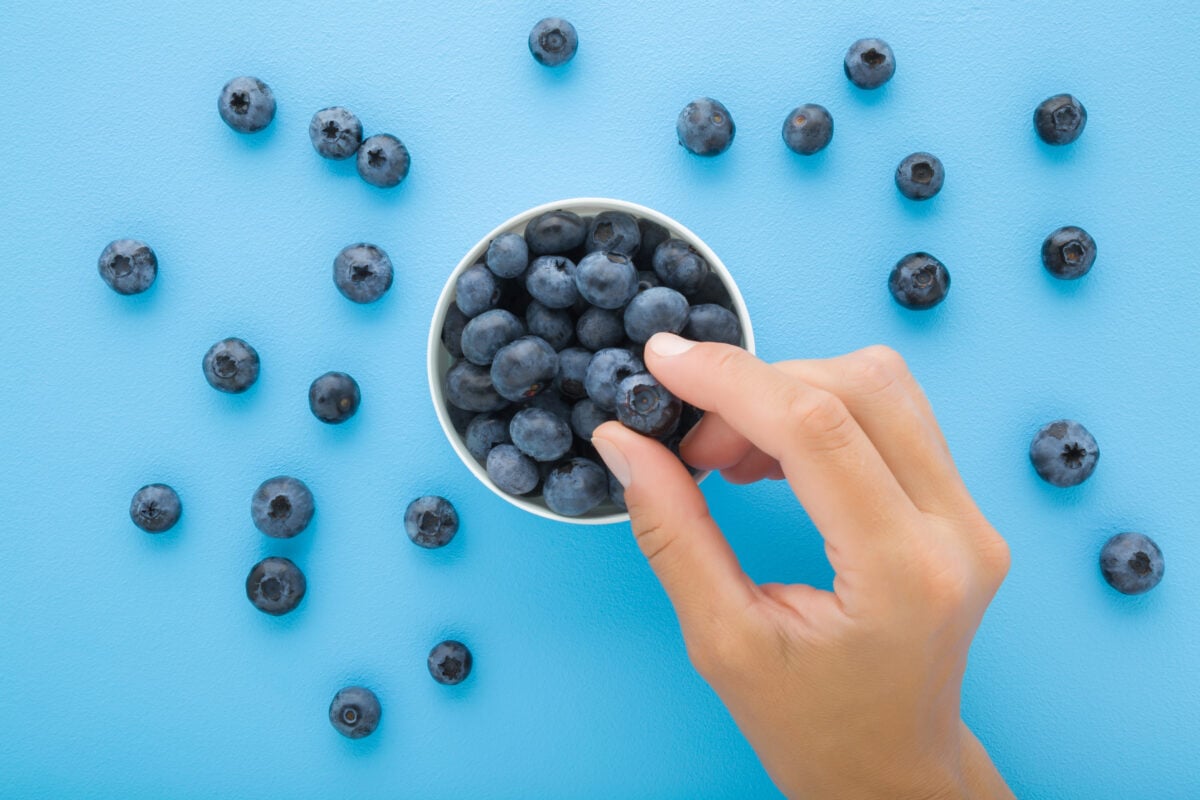
Several studies, reviews, and expert recommendations from the last 12 months indicate that eating balanced, nutritious meals rich in plant-based foods can improve health and lower the risk of certain diseases and cancers. While there is no such thing as a single “superfood,” many of the most nutritious ingredients support overall health, heart health, and brain health.
Blueberries, for example, are thought to have a variety of health-boosting qualities. BBC Good Food reports that blueberries may help manage blood pressure, reduce the risk of heart disease, regulate blood sugar, maintain eye health, support immunity, reduce gastrointestinal symptoms, reduce muscle damage, and promote healthy aging.
A 2023 study found that consuming powdered blueberries led to improved memory, improved attention, and lower overall blood pressure among participants. Meanwhile, a separate study from 2021 suggested that blueberries may offer “neuroprotective” benefits.
Sharma also mentions the potential neuroprotective effects of berries and chocolate. She notes that both berries and dark chocolate “are a good source of molecules that exhibit antioxidant activity.” Studies indicate that consuming dark chocolate promotes “cerebral blood flow and improves cognitive function,” along with optimal oxygen levels.
Studies also indicate that the regular intake of whole grains – such as oatmeal, brown rice, or whole wheat pasta – is associated with “improved metabolic markers linked to cognitive function,” including inflammation, glucose metabolism, blood pressure, and cholesterol.
Leafy greens, nuts, and seeds
Leafy greens are extremely nutrient-dense and should be a key part of any healthy diet. Green vegetables support vision, skin health, and the immune system, and lower disease risk. Consuming a single portion per day may help to slow cognitive decline while aging.
“A deficiency in certain nutrients like folate and beta carotene can lead to neurological decline, so foods rich in these can support cognitive health,” says Sharma. “These include green leafy vegetables, such as kale, spinach, broccoli, and pak choi.”
For omega-3, Sharma recommends chia seeds, hemp seeds, flaxseed, avocado, algal oil, and walnuts. “These fatty acids are also essential in supporting brain structure,” she adds.
Nuts and seeds are rich in essential nutrients like vitamins, minerals, healthy fats, and antioxidants, and are therefore also thought to support brain health. Walnuts, in particular, are linked to improved brain function, and a study published earlier this month found “promising” evidence “for a possible protective effect on memory.”
Chia seeds are particularly rich in omega-3, making them an ideal ingredient for boosting brain health. Meanwhile, sesame seeds are rich in lignans, which may have “neuroprotection, metabolic improvement, anti-tumor, anti-aging, and inflammation-suppressing benefits.”
Read more: The 5 Most Nutritious Seeds To Add To Your Diet
Ingredients to cut down on
According to a summary by Healthline, foods such as sugary drinks, refined carbohydrates (such as instant noodles or french fries), foods high in trans fats, food and drinks that contain aspartame, highly processed foods, alcohol, and foods high in mercury (like fish) are all linked to negative health outcomes related to cognition and brain health.
Plant-based and vegan food is generally less likely to contain mercury – a poisonous heavy metal – which is sometimes found in common “seafood” animals like bluefin tuna. Alcohol, however, is regularly consumed by almost 50 percent of the population and 55 percent of men.
The World Health Organization classifies alcohol as a Group 1 carcinogen, meaning that no level of consumption is safe for human health. A study published in 2018 indicated that the potential negative health outcomes linked to drinking outweighed any positives, and also concluded that there is no safe level of alcohol consumption.
“Diet should be more about balance rather than avoidance,” explained Sharma. “So minimizing intake of items such as alcohol, caffeine, and ultra-processed foods, and following a healthy and balanced diet to obtain the nutrients you need for a happy, healthy body and mind is key.”
11 brain-boosting vegan recipes
Cabbage and walnut lasagna
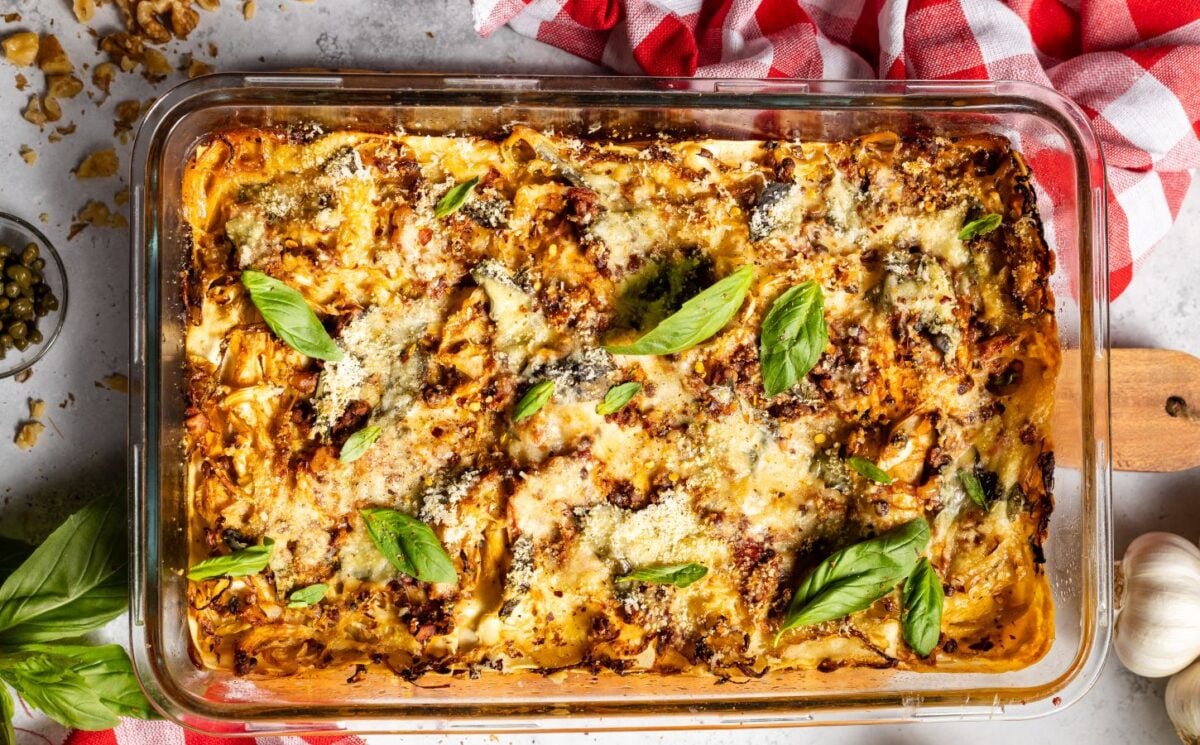
This cabbage and walnut lasagna from Romy London combines brain-boosting greens and nuts with nutritious lentils, tomato, lemon, and garlic. It takes a little over one hour to prepare and cook and can serve up to six people. Chili flakes and vegan mozzarella make it spicy and cheesy, and it can be topped off with a sprinkling of breadcrumbs for a little crunch.
Find the recipe here.
Walnut mince burrito bowl
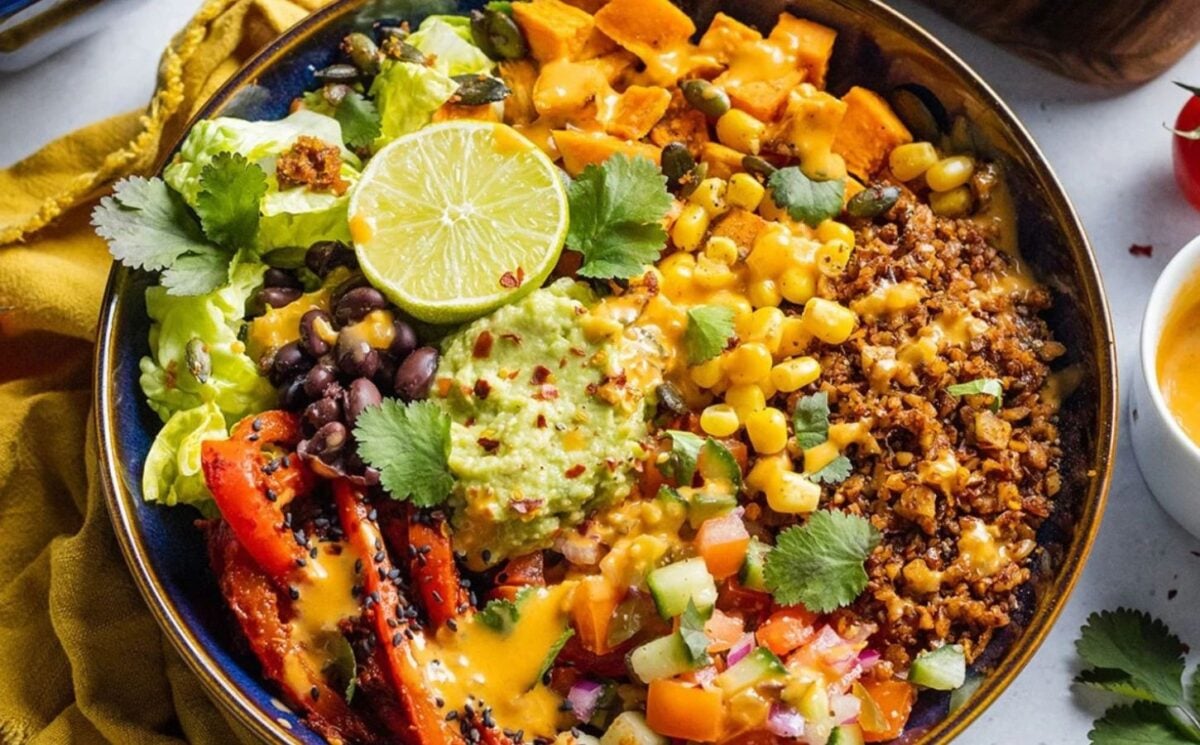
Another walnut-based dish, this brain-boosting recipe also comes from Romy London. The walnut “mince” is the star of the show and has a delightfully meaty texture and savory flavor. In addition to omega-3, antioxidants, and vitamin E, it also adds wholesome plant protein.
Find the recipe here.
Mushroom and walnut ragu
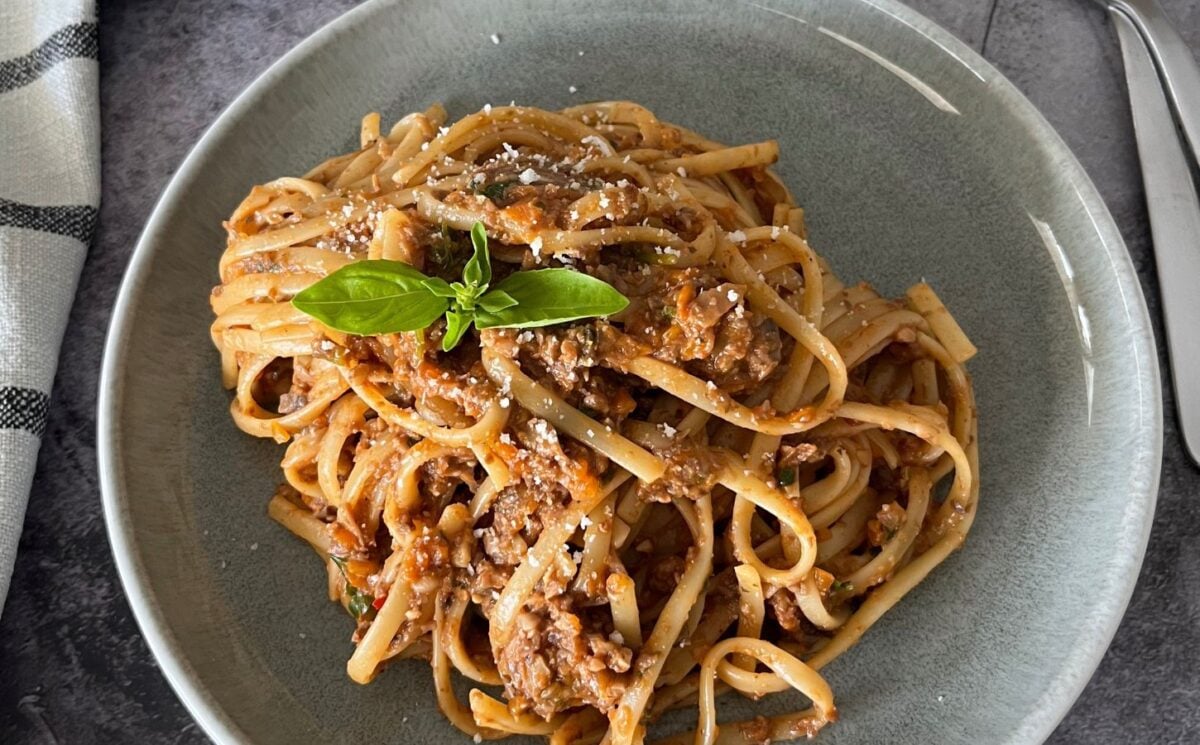
This mushroom and walnut ragu is super simple and comes to PBN from Natlicious Food. The sauce combines tomato with miso, soy sauce, and chili, while the mince combines mushrooms with walnuts and veggies for a particularly meaty, full-bodied texture.
Find the recipe here.
Blueberries and cream chia pudding
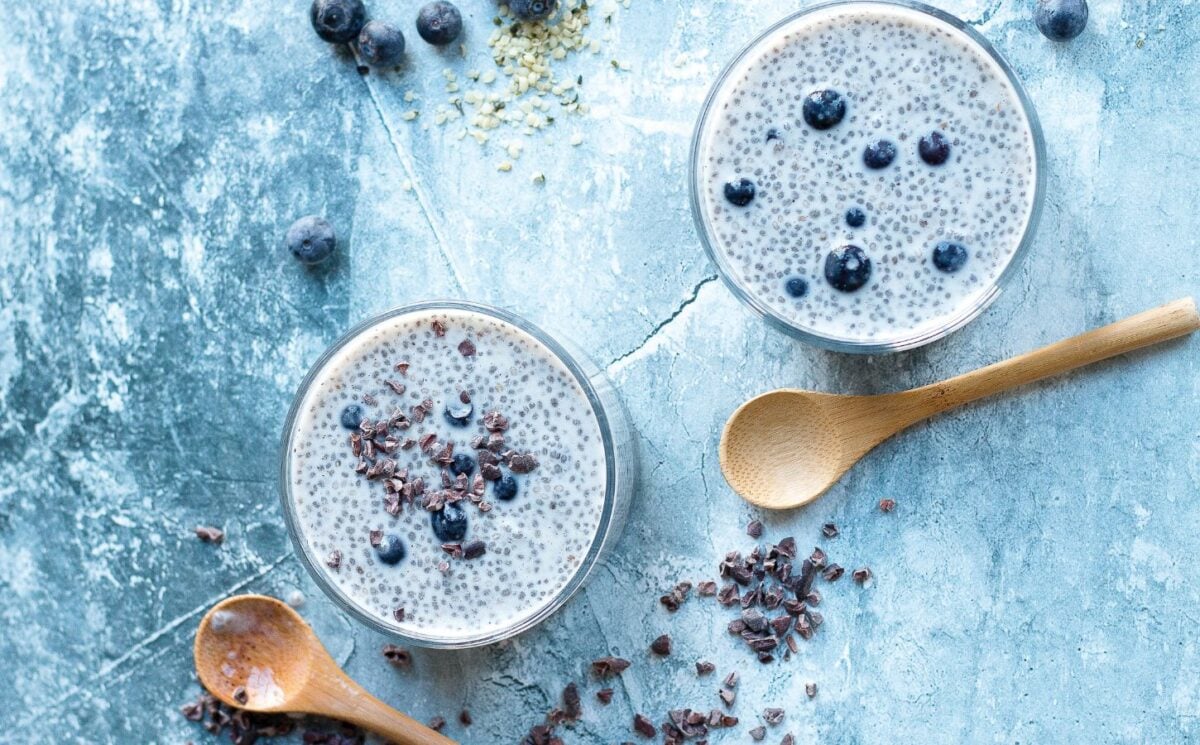
Making this blueberry and cream chia pudding takes 40 minutes for four servings. It comes from Melissa King’s cookbook, Easy. Whole. Vegan., and combines two key brain-boosting ingredients, blueberries and chia seeds. It also features cashew cream, and cashews are rich in the essential minerals zinc and magnesium.
Find the recipe here.
Vegan energy bars
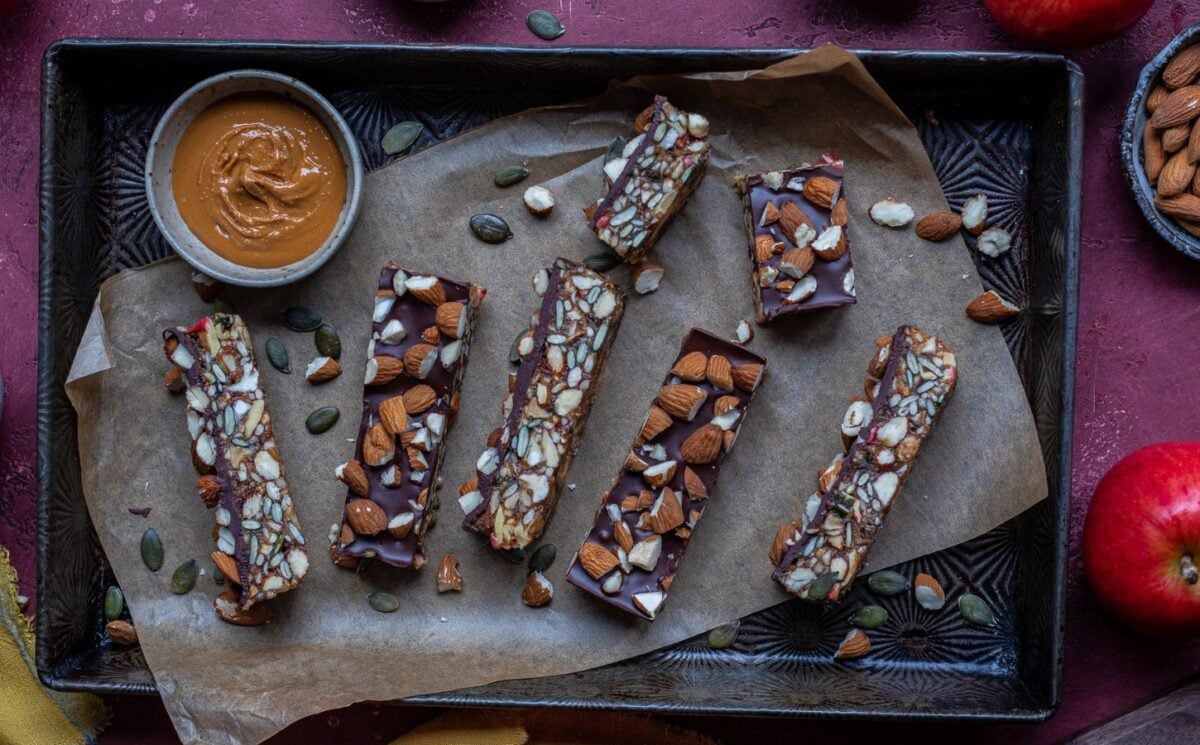
For this vegan energy bar recipe, the Happy Skin Kitchen combines nuts, seeds, dates, and apples. Dates are rich in antioxidants, which are thought to support brain functionality, while apples contain quercetin and flavanols, which may reduce oxidative stress and protect against age-related memory loss, respectively. The bars are super sweet, simple to make, and easy to store, and this recipe makes six large bars.
Find the recipe here.
Pumpkin seed tofu
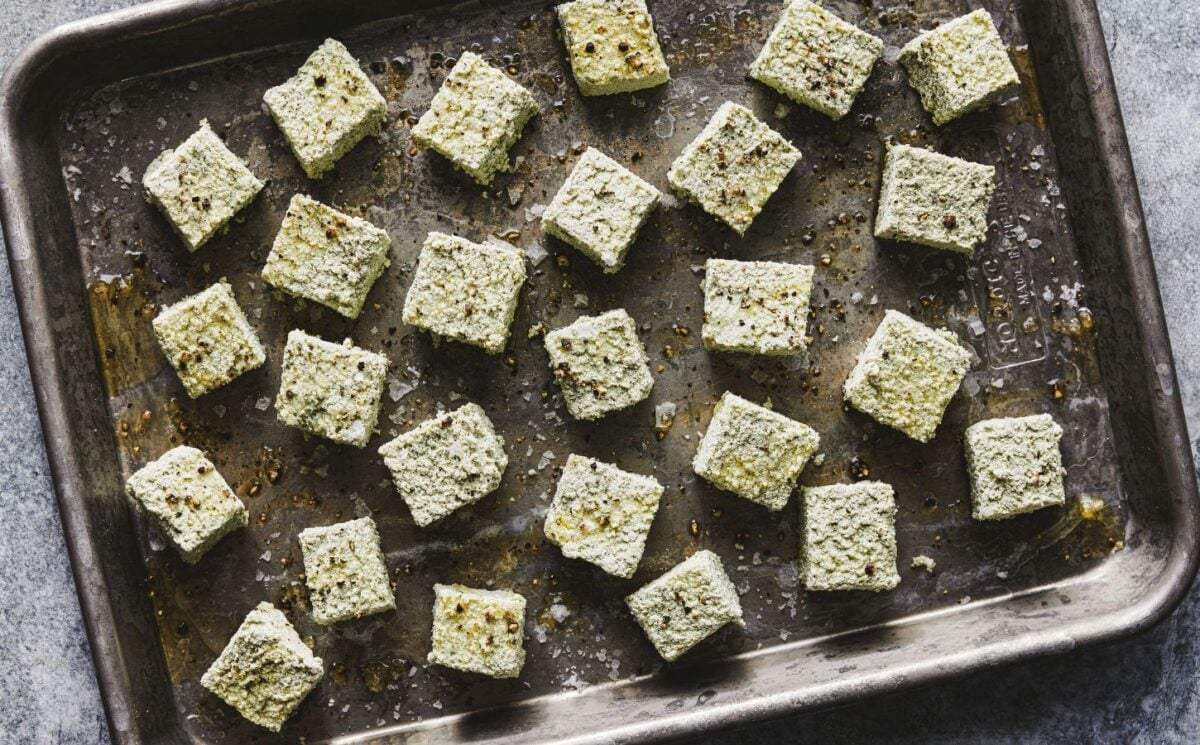
This recipe comes from Joe Yonan’s Mastering the Art of Plant-Based Cooking and requires just four ingredients: pumpkin seeds, water, salt, and lemon juice. Pumpkin seeds contain zinc, which is essential for normal brain function, while the vitamin C in lemon juice is thought to improve brain function and provide an overall protective effect.
Find the recipe here.
‘Superfood’ stir-fry
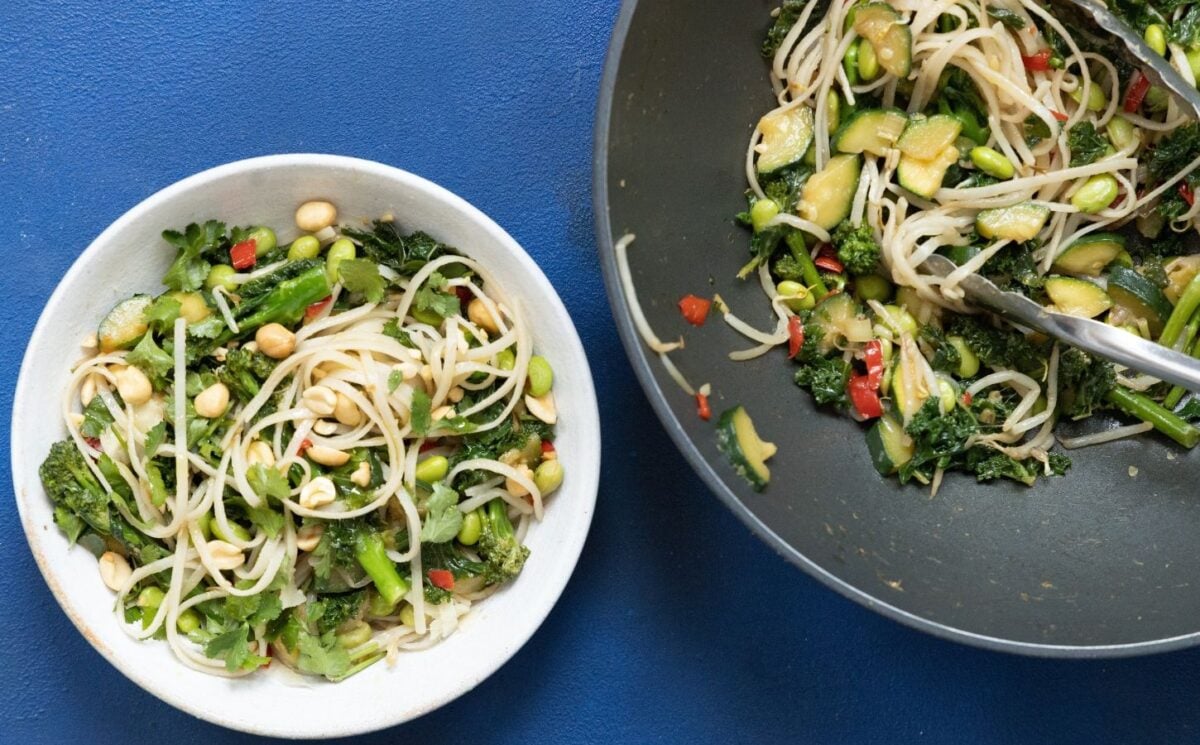
BOSH!’s “superfood” stir-fry combines nutritious vegetables like edamame, broccoli, and kale with chili, garlic, ginger, lemongrass, and soy. Top with peanuts. “Is there anything more satisfying [than] whipping up a speedy stir fry after a long day,” says BOSH! “Easy, speedy, and downright good for you – plant-based cooking has never been more straightforward.”
Find the recipe here.
Zesty chickpea traybake
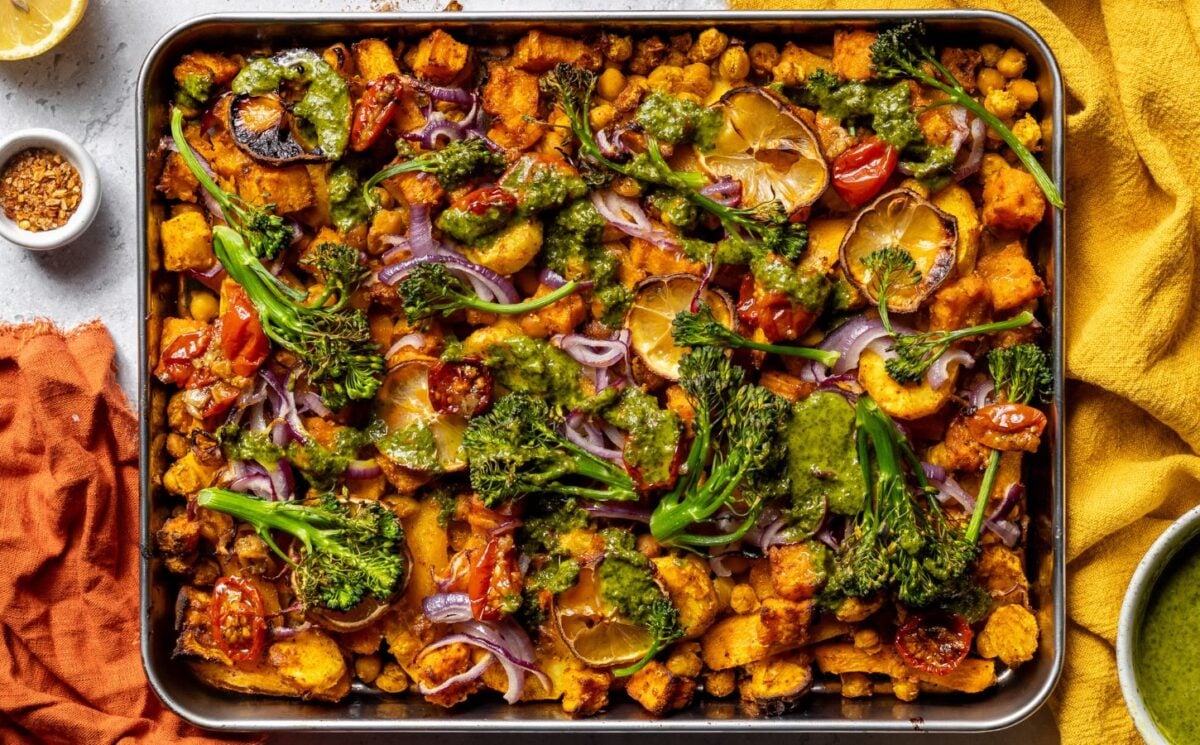
Romy London also created this zesty chickpea traybake recipe, which incorporates hearty vegetables like sweet potato, swede, and parsnips, alongside broccoli and chickpeas. It comes with an optional slow-roasted tomato and garlic confit to top the meal off.
Find the recipe here.
Lentil and broccoli summer salad
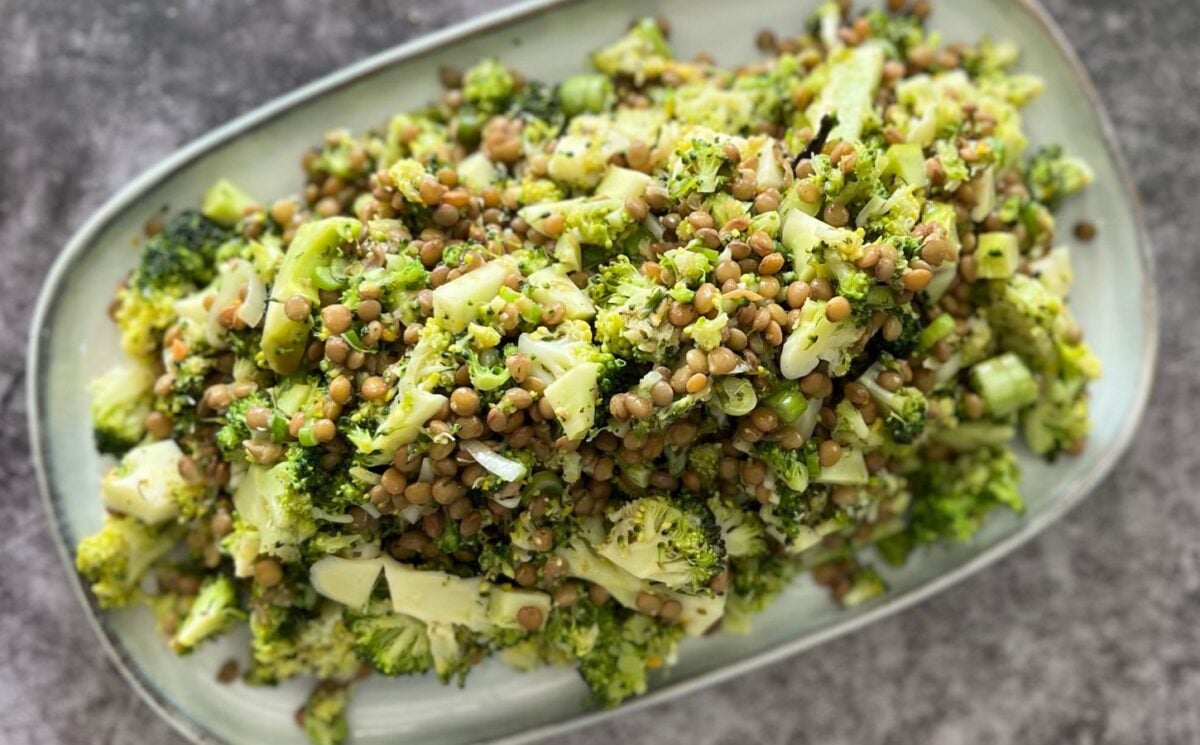
Just one cup of lentils contains around 90 percent of your RDA for folate, which supports mood and mental clarity. In addition to lentils, this summer salad from Natlicious Food also contains a whole head of broccoli. Excluding soaking time for the lentils, the recipe takes just 30 minutes to prepare and serves three.
Find the recipe here.
Vegan Snickers protein balls
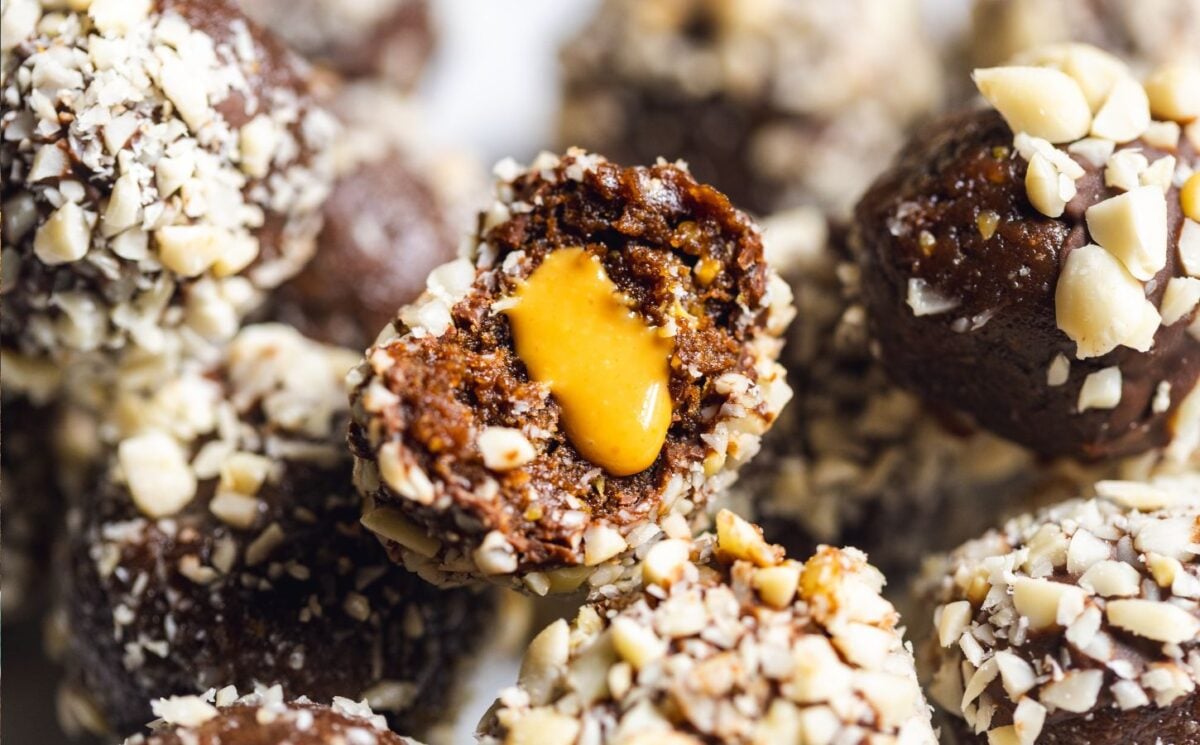
Another recipe from Romy London, these vegan Snickers-style protein balls combine dates with hemp seed, linseed, and mixed nuts. They also include dark chocolate, which contains both flavonoids and antioxidants and therefore may improve cognitive function.
Find the recipe here.
Ikarian ‘longevity stew’
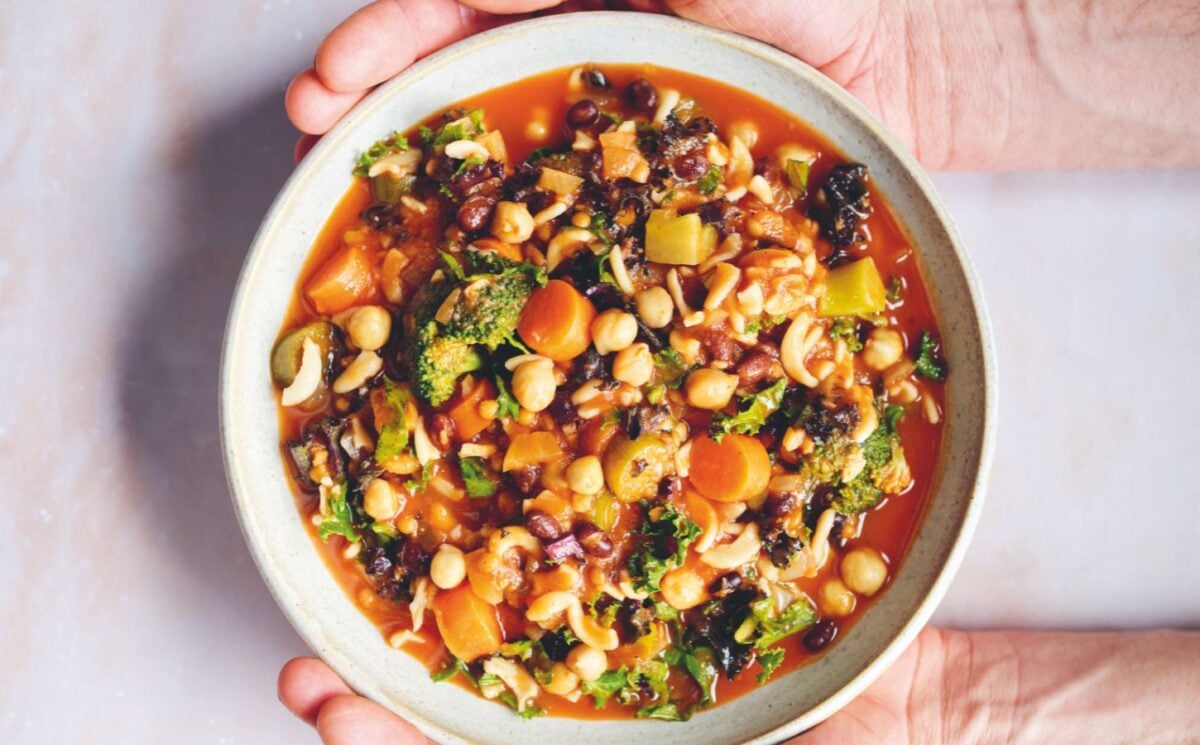
This recipe comes from Happy Pear’s Recipes and Learnings from the First 20 Years. The dish itself is inspired by the traditional diets of Ikaria, Greece, whose population is known for their long lifespans, and contains leafy and green vegetables like broccoli and kale. It also includes beans, lentils, and wholewheat pasta, all of which are thought to support brain and heart health.
Find the recipe here.
Read more: Oven-Baked Butter Chickpeas Is A Protein-Packed Vegan Dinner
